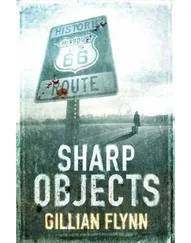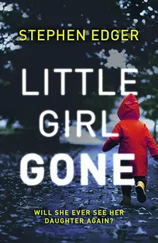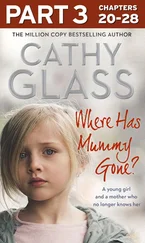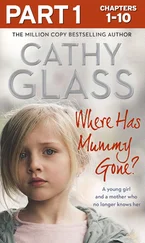“Oh, that sounds like too much trouble, really. We’re fine. We really are.”
“You’ll be more fine after you eat a good meal,” she said, patting my arm.
Silence. She tried another angle.
“I really hope it doesn’t end up having anything to do … with our homeless problem,” she said. “I swear, I have filed complaint after complaint. One broke into my garden last month. My motion sensor went off, so I peeked outside and there he was, kneeling in the dirt, just guzzling tomatoes. Gnawing at them like apples, his face and shirt were covered in juice and seeds. I tried to scare him off, but he loaded up at least twenty before he ran off. They were on the edge anyway, those Blue Book guys. No other skills.”
I felt a sudden affinity for the troop of Blue Book men, pictured myself walking into their bitter encampment, waving a white flag: I am your brother, I used to work in print too. The computers stole my job too .
“Don’t tell me you’re too young to remember Blue Books, Nick,” Shawna was saying. She poked me in the ribs, making me jump more than I should have.
“I’m so old, I’d forgotten about Blue Books until you reminded me.”
She laughed: “What are you, thirty-one, thirty-two?”
“Try thirty-four.”
“A baby.”
The trio of energetic elderly ladies arrived just then, tromping toward us, one working her cell phone, all wearing sturdy canvas garden skirts, Keds, and sleeveless golf tops revealing wobbly arms. They nodded at me respectfully, then flicked a glance of disapproval when they saw Shawna. We looked like a couple hosting a backyard barbecue. We looked inappropriate.
Please go away, Shawna , I thought.
“So anyway, the homeless guys, they can be really aggressive, like, threatening, toward women,” Shawna said. “I mentioned it to Detective Boney, but I get the feeling she doesn’t like me very much.”
“Why do you say that?” I already knew what she was going to say, the mantra of all attractive women.
“Women don’t like me all that much.” She shrugged. “Just one of those things. Did—does Amy have a lot of friends in town?”
A number of women—friends of my mom’s, friends of Go’s—had invited Amy to book clubs and Amway parties and girls’ nights at Chili’s. Amy had predictably declined all but a few, which she attended and hated: “We ordered a million little fried things and drank cocktails made from ice cream .”
Shawna was watching me, wanting to know about Amy, wanting to be grouped together with my wife, who would hate her.
“I think she may have the same problem you do,” I said in a clipped voice.
She smiled.
Leave, Shawna .
“It’s hard to come to a new town,” she said. “Hard to make friends, the older you get. Is she your age?”
“Thirty-eight.”
That seemed to please her too.
Go the fuck away .
“Smart man, likes them older women.”
She pulled a cell phone out of her giant chartreuse handbag, laughing. “Come here,” she said, and pulled an arm around me. “Give me a big chicken-Frito casserole smile.”
I wanted to smack her, right then, the obliviousness, the girliness , of her: trying to get an ego stroke from the husband of a missing woman. I swallowed my rage, tried to hit reverse, tried to overcompensate and be nice , so I smiled robotically as she pressed her face against my cheek and took a photo with her phone, the fake camera-click sound waking me.
She turned the phone around, and I saw our two sunburned faces pressed together, smiling as if we were on a date at the baseball game. Looking at my smarmy grin, my hooded eyes, I thought, I would hate this guy .
AMY ELLIOTT DUNNE
SEPTEMBER 15, 2010
DIARY ENTRY
I am writing from somewhere in Pennsylvania. Southwest corner. A motel off the highway. Our room overlooks the parking lot, and if I peek out from behind the stiff beige curtains, I can see people milling about under the fluorescent lights. It’s the kind of place where people mill about. I have the emotional bends again. Too much has happened, and so fast, and now I am in southwest Pennsylvania, and my husband is enjoying a defiant sleep amid the little packets of chips and candies he bought from the vending machine down the hall. Dinner. He is angry at me for not being a good sport. I thought I was putting up a convincing front—hurray, a new adventure!—but I guess not.
Now that I look back, it was like we were waiting for something to happen. Like Nick and I were sitting under a giant soundproof, windproof jar, and then the jar fell over and—there was something to do.
Two weeks ago, we are in our usual unemployed state: partly dressed, thick with boredom, getting ready to eat a silent breakfast that we’ll stretch over the reading of the newspaper in its entirety. We even read the auto supplement now.
Nick’s cell phone rings at ten A.M., and I can tell by his voice that it is Go. He sounds springy, boyish, the way he always does when he talks to her. The way he used to sound with me.
He heads into the bedroom and shuts the door, leaving me holding two freshly made eggs Benedicts quivering on the plates. I place his on the table and sit opposite, wondering if I should wait to eat. If it were me, I think, I would come back out and tell him to eat, or else I’d raise a finger: Just one minute . I’d be aware of the other person, my spouse, left in the kitchen with plates of eggs. I feel bad that I was thinking that. Because soon I can hear worried murmurs and upset exclamations and gentle reassurances from behind the door, and I begin wondering if Go is having some back-home boy troubles. Go has a lot of breakups. Even the ones that she instigates require much handholding and goo-gawing from Nick.
So I have my usual Poor Go face on when Nick emerges, the eggs hardened on the plate. I see him and know this isn’t just a Go problem.
“My mom,” he starts, and sits down. “Shit. My mom has cancer. Stage four, and it’s spread to the liver and bones. Which is bad, which is …”
He puts his face in his hands, and I go over and put my arms around him. When he looks up, he is dry-eyed. Calm. I’ve never seen my husband cry.
“It’s too much for Go, on top of my dad’s Alzheimer’s.”
“Alzheimer’s? Alzheimer’s? Since when?”
“Well, a while. At first they thought it was some sort of early dementia. But it’s more, it’s worse.”
I think, immediately, that there is something wrong with us, perhaps unfixable, if my husband wouldn’t think to tell me this. Sometimes I feel it’s his personal game, that he’s in some sort of undeclared contest for impenetrability. “Why didn’t you say anything to me?”
“My dad isn’t someone I like to talk about that much.”
“But still—”
“Amy. Please.” He has that look, like I am being unreasonable, like he is so sure I am being unreasonable that I wonder if I am.
“But now. Go says with my mom, she’ll need chemo but … she’ll be really, really sick. She’ll need help.”
“Should we start looking for in-home care for her? A nurse?”
“She doesn’t have that kind of insurance.”
He stares at me, arms crossed, and I know what he is daring: daring me to offer to pay, and we can’t pay, because I’ve given my money to my parents.
“Okay, then, babe,” I say. “What do you want to do?”
We stand across from each other, a showdown, as if we are in a fight and I haven’t been informed. I reach out to touch him, and he just looks at my hand.
“We have to move back.” He glares at me, opening his eyes wide. He flicks his fingers out as if he is trying to rid himself of something sticky. “We’ll take a year, and we’ll go do the right thing. We have no jobs, we have no money, there’s nothing holding us here. Even you have to admit that.”
Читать дальше












